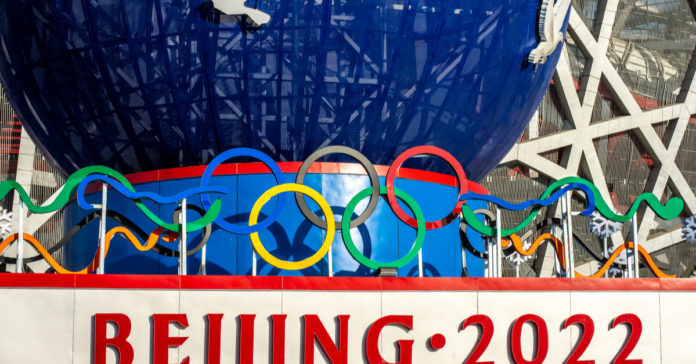China has condemned the United States for announcing a diplomatic boycott of the 2022 Winter Olympics and has warned that the U.S. will have to “pay a price” for the action.
The White House said that U.S. government officials will not go to Beijing next year because of China’s human rights record in Xinjiang. However, U.S. athletes will be free to travel and compete in the games.
Zhao Lijian, Foreign Ministry spokesperson, said “China would take resolute countermeasures” against the U.S., but he didn’t divulge further details.
The United States Press Secretary, Jen Psaki, said on Monday: “The Biden administration will not send any diplomatic or official representation to the Beijing 2022 Olympic and Paralympic games, given the PRC’s ongoing genocide and crimes against humanity in Xinjiang…
“We will not be contributing to the fanfare of the games. U.S. diplomats or official representation would treat these games as business-as-usual in the face of the PRC’s egregious human rights abuses and atrocities in Xinjiang.”
Australia also voiced its support and said it would join the diplomatic boycott.
And earlier today Boris Johnson said there will “effectively” be a diplomatic boycott of the Winter Olympics in China, with no UK government minister or official expected to attend.
Subscribe to our newsletter and stay updated on the latest news and updates from around the Muslim world!
When pressed at Prime Minister’s Questions, Mr Johnson said no diplomats were set to go to the Games. However, he added: “I do not think that sporting boycotts are sensible and that remains the policy of the government.”
Meanwhile, Uyghur rights organisations applauded the U.S. decision.
Omer Kanat, Executive Director of the Uyghur Human Rights Project, said: “The Chinese government is using the 2022 Winter Games as a showcase for its world leadership. A diplomatic boycott sends a strong signal: governments refuse to give a green light to the Uyghur genocide. Corporate sponsors like Coca-Cola and Airbnb need to consider: do they want their logos displayed at an Olympic Games in the shadow of concentration camps?”
Campaign for Uyghur, a Washington based advocacy group, Executive Director, Rushan Abbas, said: “It is always a positive step when the efforts of thousands of activists and individuals are made manifest in concrete action, and today is no different. We reject that there can be such a thing as an Olympic celebration when so many in East Turkistan are treated as less than human by the Chinese Communist Party…
“We reject that there can be a symbol of peace when the camps and surveillance apparatuses there stand as monuments to atrocity. We reject the Olympic Games in the midst of genocide. This step sends a firm warning to the Chinese state that these rejections are shared by the United States government, and hopefully by other governments as well.”
The International Olympic Committee on Tuesday said that it respected the United States’ decision for a diplomatic boycott of the games.
Juan Antonio Samaranch, the IOC’s coordination commission for Beijing Olympics, said: “We always ask for as much respect as possible and least possible interference from the political world. We have to be reciprocal. We respect the political decisions taken by political bodies. We are extremely proud, happy and hopeful that all athletes of the world will live in peace in 59 days (in Beijing).”
“This is a political domain and we respect their right to take that political decision and them to respect the athlete’s right to take part in the Games,” IOC spokesperson Mark Adams said. “We think that countries and their governments are very much behind the Games and very much understanding. They clearly support the aims of the Olympic Games and they understand that we are, hopefully, beyond politics.”






![The History of Sylhet and British Bangladeshis [Short Film]](https://5pillarsuk.com/wp-content/uploads/2024/11/IMG_3518-218x150.png)













